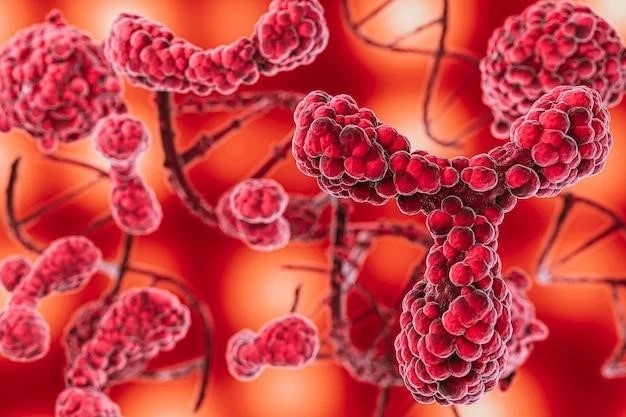Understanding Carnosinemia
Causes of Carnosinemia⁚ Learn about the genetic mutations that lead to Carnosinemia and how they affect carnosine metabolism in the body.
Symptoms of Carnosinemia⁚ Understand the common signs and symptoms associated with Carnosinemia to seek early diagnosis and treatment.
Diagnosis and Testing for Carnosinemia⁚ Find out about the diagnostic procedures and tests used to confirm Carnosinemia.
Treatment Options for Carnosinemia⁚ Explore the various approaches to managing Carnosinemia to improve quality of life.
Causes of Carnosinemia
Carnosinemia is primarily caused by genetic mutations affecting the synthesis or degradation of the dipeptide carnosine. These mutations typically impact enzymes involved in carnosine metabolism, such as carnosinase (CN1) and carnosine synthase (CARNS1). The deficiency of these enzymes results in the accumulation of carnosine in the blood and tissues, leading to the symptoms associated with Carnosinemia. The inheritance pattern of Carnosinemia can be autosomal recessive, meaning an individual must inherit two abnormal copies of the gene to develop the condition. Understanding the genetic basis of Carnosinemia is crucial for accurate diagnosis and targeted treatment strategies.
Symptoms of Carnosinemia
The symptoms of Carnosinemia can vary depending on the severity of the condition and the age of onset. Common symptoms include developmental delays, neurological abnormalities, seizures, intellectual disability, and muscle weakness. Some individuals may also experience ataxia, speech difficulties, and behavioral issues. It is important to recognize these signs early on and consult with healthcare professionals for proper evaluation and management. Understanding the spectrum of symptoms associated with Carnosinemia is essential for timely intervention and support.

Diagnosis and Testing for Carnosinemia
Diagnosing Carnosinemia typically involves genetic testing to identify mutations in the genes associated with carnosine metabolism. Additionally, biochemical tests may be performed to measure levels of carnosine in the blood or urine. Neurological examinations, imaging studies, and developmental evaluations can help assess the impact of Carnosinemia on the individual. Prompt and accurate diagnosis is crucial for implementing appropriate treatment and management strategies. Consult with a healthcare provider specializing in genetic disorders for comprehensive testing and evaluation.
Treatment Options for Carnosinemia
Managing Carnosinemia focuses on minimizing symptoms and improving quality of life. Treatment may involve dietary modifications to reduce carnosine intake, as well as monitoring and managing potential complications such as neurological issues. Some individuals may benefit from early interventions such as speech therapy, physical therapy, or special education programs to address developmental delays. Collaborate closely with a multidisciplinary healthcare team, including genetic specialists and neurologists, to tailor a comprehensive treatment plan for Carnosinemia. Regular follow-ups and monitoring are essential to track progress and adjust interventions as needed.
Carnosinemia Research and Developments
Ongoing research on Carnosinemia aims to further understand the underlying genetic mechanisms, identify potential therapeutic targets, and improve treatment outcomes. Scientists are exploring innovative gene therapies, enzyme replacement strategies, and targeted interventions to address the metabolic disruptions associated with Carnosinemia. Clinical trials and collaborative studies are essential for advancing knowledge and developing effective therapies for individuals with Carnosinemia. Stay informed about the latest research findings and consider participating in research initiatives to contribute to the progress in Carnosinemia management and care.
Carnosinemia in Children⁚ Special Considerations
Managing Carnosinemia in children requires specialized care and considerations due to their unique developmental needs. Early detection and intervention are crucial for optimizing outcomes and supporting growth and development. Children with Carnosinemia may benefit from a multidisciplinary approach involving pediatric specialists, genetic counselors, nutritionists, and therapists. Tailoring treatment plans to address cognitive, motor, and social challenges is essential. Parents and caregivers play a vital role in advocating for their child’s needs and ensuring access to appropriate resources and support services. Stay proactive in seeking guidance and collaborating with healthcare providers to provide the best possible care for children with Carnosinemia.
Living with Carnosinemia⁚ Tips and Strategies
Living with Carnosinemia requires a proactive approach to managing symptoms and promoting overall well-being. Maintain regular follow-ups with healthcare providers to monitor progress and adjust treatment as needed. Focus on a balanced diet low in carnosine-rich foods and consider working with a nutritionist to ensure nutritional needs are met. Engage in physical activities suitable for your condition and incorporate speech or occupational therapy if recommended. Seek support from patient advocacy groups or online communities to connect with others facing similar challenges. Prioritize self-care, mental health, and emotional well-being while navigating life with Carnosinemia.
Genetic Counseling for Carnosinemia
Genetic counseling is essential for individuals and families affected by Carnosinemia to understand the inheritance pattern of the condition, assess the risk of passing it on to future generations, and explore reproductive options. A genetic counselor can provide information about genetic testing, family planning, and available resources for support. By discussing the genetic aspects of Carnosinemia with a professional, individuals can make informed decisions about their health and family planning. Genetic counseling offers valuable insights and empowers individuals to navigate the complexities of Carnosinemia inheritance with knowledge and clarity.
